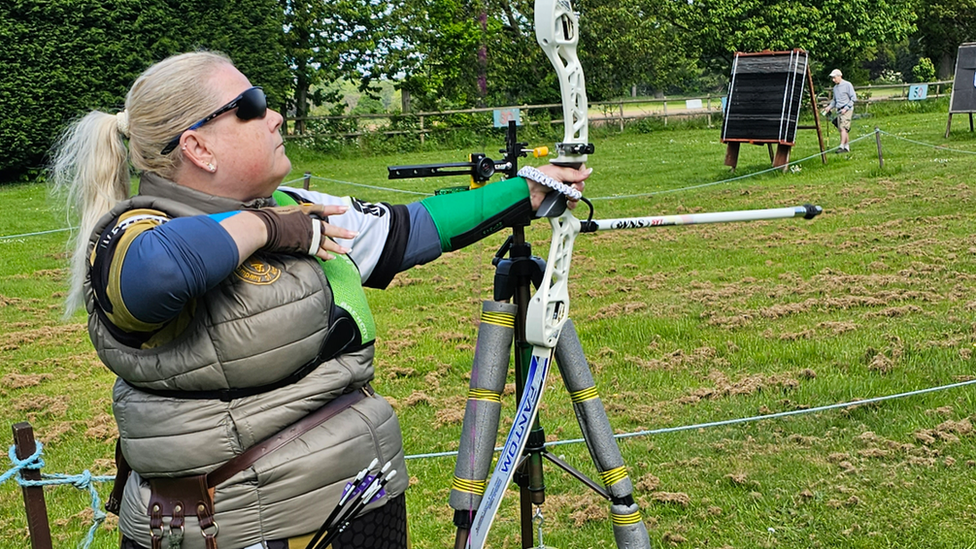Birmingham hosts Blind Sport world games in UK first
- Published
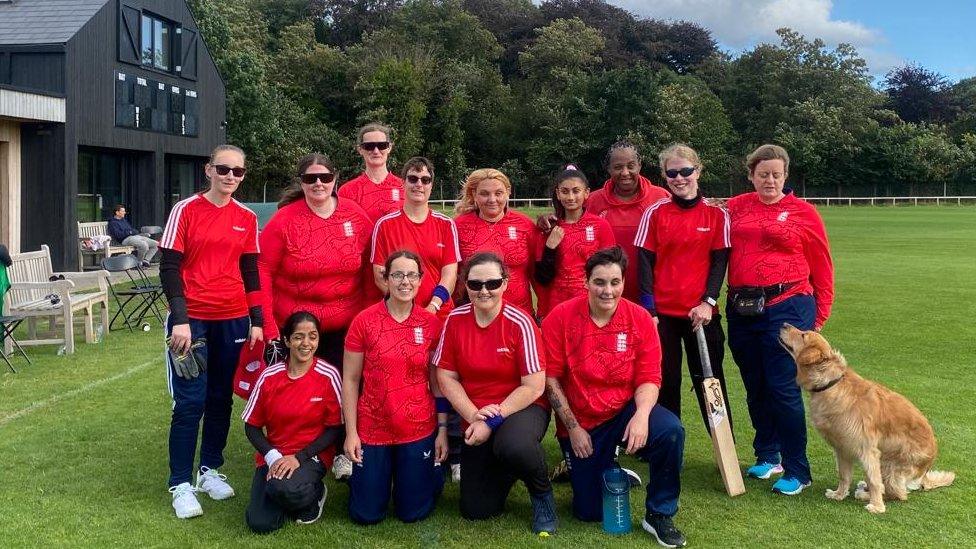
Being chosen to represent England was exciting but nerve wracking, a team member said
Teams from all over the world are taking part in the International Blind Sport Federation World Games, the first time it has been held in the UK.
More than 1,250 blind and partially sighted athletes, taking part in 11 different sports, will compete at venues such as Edgbaston for the cricket finals, Coventry's CBS Arena for the goalball and smaller venues such as Cafe Aroma at the University of Birmingham for chess.
This year's games include, for the first time, women's cricket.
Captaining England and preparing the side for Saturday's match against Australia team is Kathryn Jelfs-White.
She was born with a congenital condition which has left her short-sighted and with no colour vision.
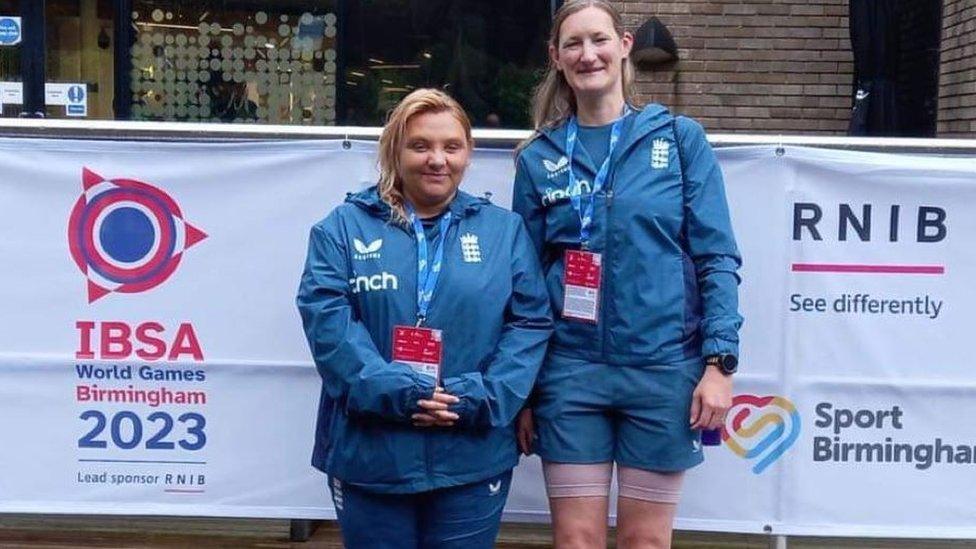
Heidi Linegar and Kathryn Jelfs-White both started playing cricket at taster sessions in Somerset
"But I have never known any different, so I just get through," she said.
Her school, one for visually impaired pupils, did not do a lot of sport, she added, certainly not cricket, but she and her family used to watch it on television or go to a nearby ground to see a match.
"The first time I tried cricket I was in my 30s. I picked it up and quite liked it and I've been doing it ever since," she said.
"We are deadly serious when we are on the pitch and we have some tough competitors in the squad. It's an a achievement to be here and we are very proud."
Jelfs-White has been playing internationally for six years, having started at a domestic level in 2010.
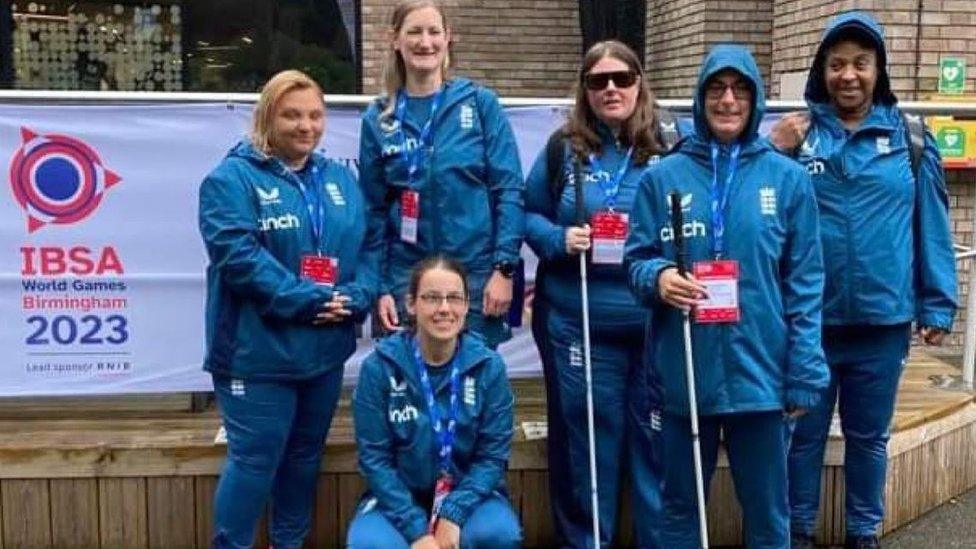
The England Women's Blind Cricket Team are play their matches at the University of Birmingham - but the final will be at Edgbaston Cricket Ground
Team-mate Heidi Linegar introduced her to the game during sessions at Taunton Vale Sports Club.
Linegar, also short-sighted from birth, took up cricket in her 30s when working for a sight-loss charity. She has since played for Somerset's sight-impaired team.
"The cricket ground helped us set up a development team and taster sessions," she said. "Then it spread to people from other counties joining in and it just gave us something to do.
"There was a good social aspect to it too - some people do not get to meet other visually impaired people."
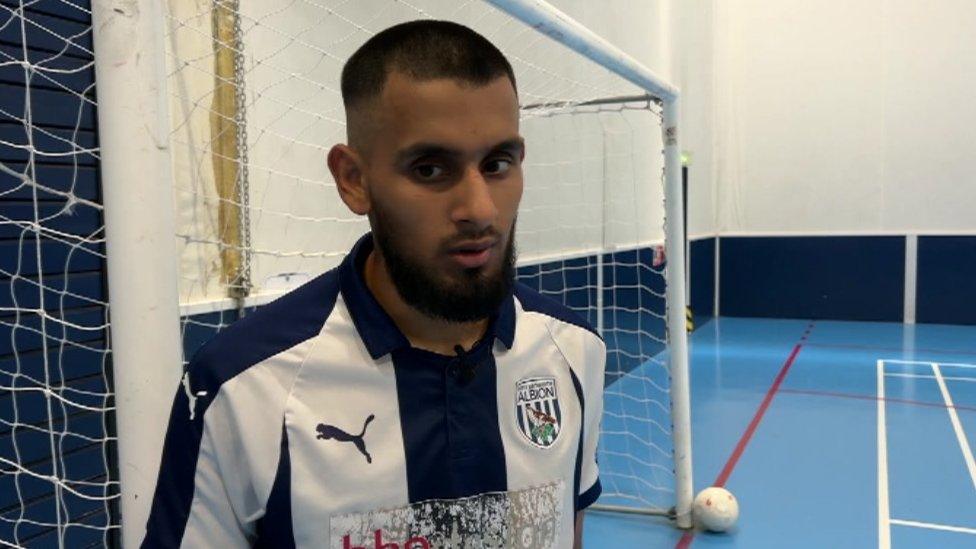
Eesa Amjid is in the England football squad after the Albion Foundation held a blind football taster session at his school
International matches are different to domestic games, however.
In domestic cricket, a larger ball is used and bowlers throw overarm. Internationally, a smaller ball is used with an underarm throw.
The team has to have a certain number of completely blind players, who will use runners, as well as people who can run for themselves.
"Communication is really important for the game - you have to have people able to describe what's happening to the ball, as well as the ball bearings so people can hear it," Linegar said.
The game is tough on the body too.
"It's quite physically demanding, we're not just standing around," Jelfs-White said. "The balls stay on the ground a lot so you are quite often down one knee."
'A big deal'
Being chosen to represent England was exciting, but nerve wracking, Linegar added.
"Being measured for kits, training at the Worcester University campus - it's all been a great experience. It will be strange to sing the national anthem to thousands of people," she said.
"And the final is at Edgbaston which, if you are a cricket fan, is a big deal."
Participants in all the games hope the games will inspire more visually impaired people to take up sport.
Eesa Amjid started playing football after the Albion Foundation held a blind football taster session at his school.
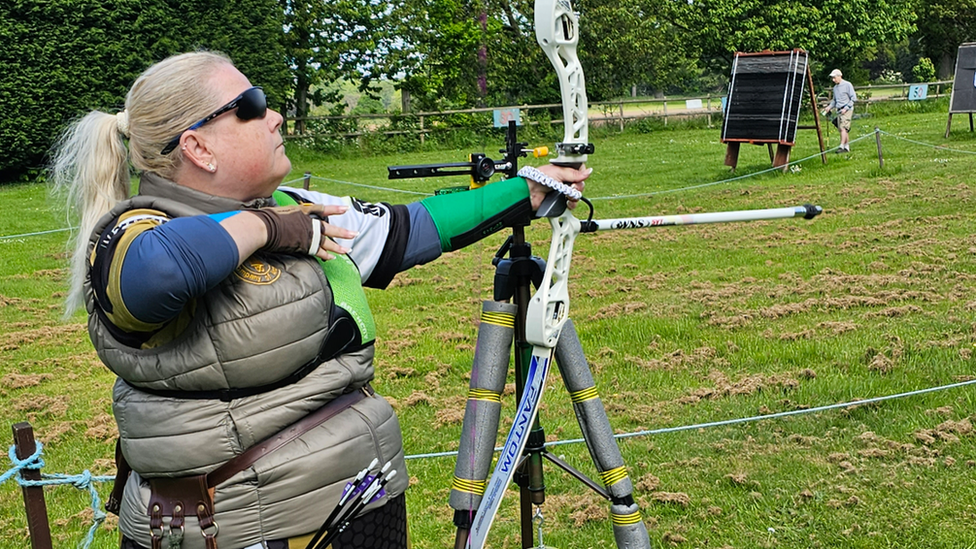
Trish Gracesmith trains with Walsall Company of Archers and also Wolverhampton Company of Archers
Eight years later he is representing England.
"It's always been a dream of mine to represent England," he said.
"The fact that I am blind and I can represent England in football, that's the biggest thing for me. It's just being able to do what others do."
Trish Gracesmith of West Bromwich took up archery after a series of strokes affected her vision. She found a welcoming home at clubs across the Black Country and now trains alongside visually impaired world champion Steve Prowse.
"I felt set free - it's the only way to describe it," she said.
Competitors wear blindfolds to ensure equality and rely on spotters for guidance.
The IBSA games run until 27 August.
- Published1 July 2023
